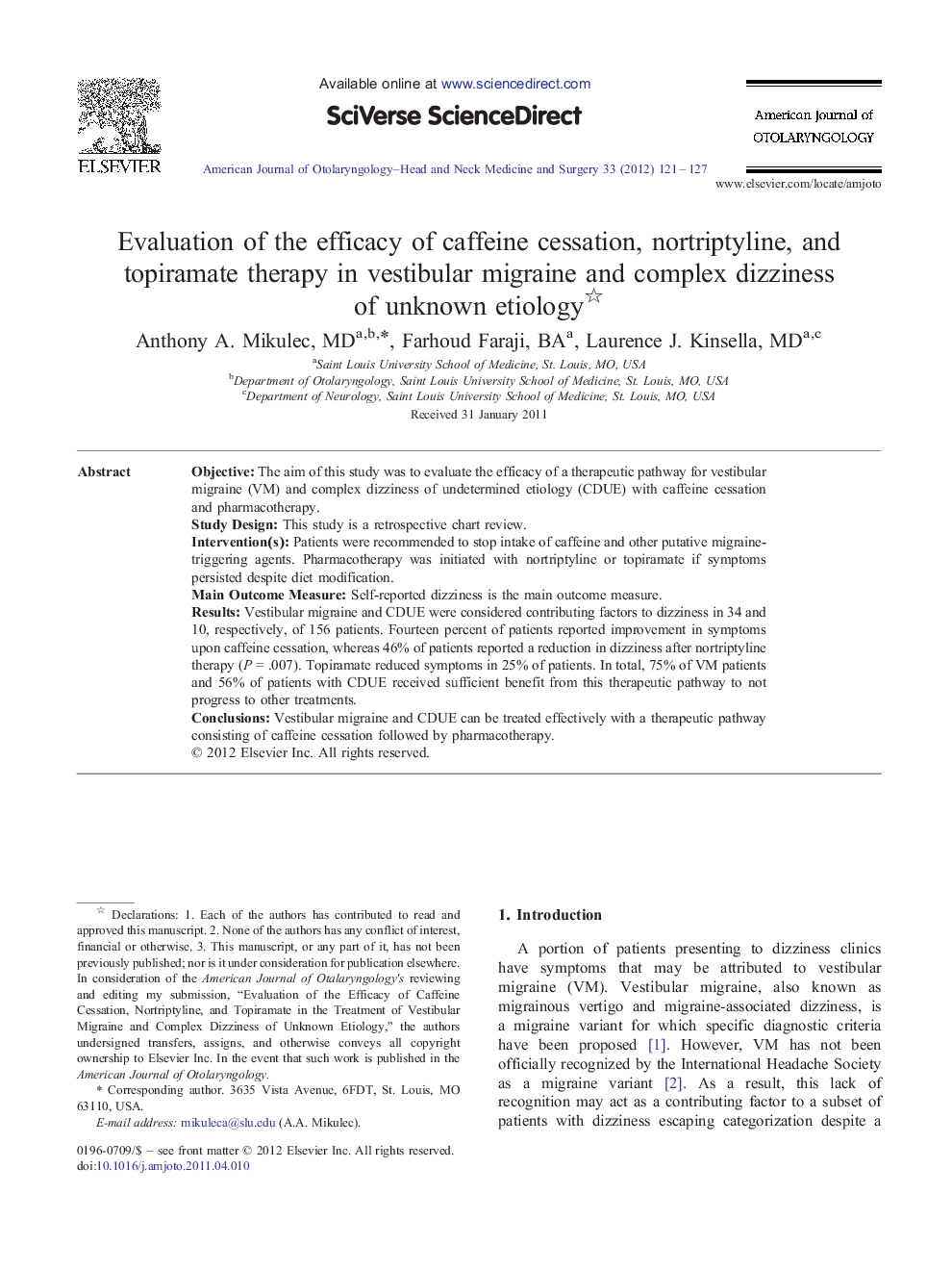| Article ID | Journal | Published Year | Pages | File Type |
|---|---|---|---|---|
| 4104027 | American Journal of Otolaryngology | 2012 | 7 Pages |
ObjectiveThe aim of this study was to evaluate the efficacy of a therapeutic pathway for vestibular migraine (VM) and complex dizziness of undetermined etiology (CDUE) with caffeine cessation and pharmacotherapy.Study DesignThis study is a retrospective chart review.Intervention(s)Patients were recommended to stop intake of caffeine and other putative migraine-triggering agents. Pharmacotherapy was initiated with nortriptyline or topiramate if symptoms persisted despite diet modification.Main Outcome MeasureSelf-reported dizziness is the main outcome measure.ResultsVestibular migraine and CDUE were considered contributing factors to dizziness in 34 and 10, respectively, of 156 patients. Fourteen percent of patients reported improvement in symptoms upon caffeine cessation, whereas 46% of patients reported a reduction in dizziness after nortriptyline therapy (P = .007). Topiramate reduced symptoms in 25% of patients. In total, 75% of VM patients and 56% of patients with CDUE received sufficient benefit from this therapeutic pathway to not progress to other treatments.ConclusionsVestibular migraine and CDUE can be treated effectively with a therapeutic pathway consisting of caffeine cessation followed by pharmacotherapy.
